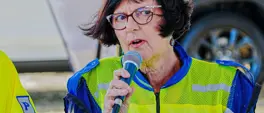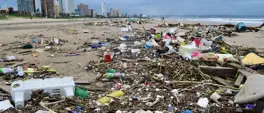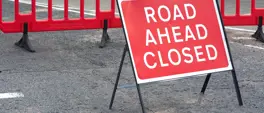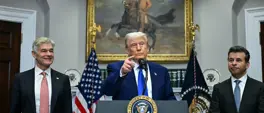Inside the world of the donkey cart-riding villages of Mahikeng
Thabiso Goba and Xanderleigh Dookey Makhaza
25 March 2024 | 15:59Eyewitness News was in the North West ahead of the elections, and spoke to residents who still use donkey carts to get around and remain loyal to the ANC.
MAKHIKENG - A lack of development and poverty means a number of villages in Mahikeng, North West, still rely on donkey carts for transportation.
From transporting goods and heavy materials to pupils and the elderly, donkeys play a vital part in these communities.
With South Africa now poised for its 7th general elections, Eyewitness News has taken to the streets across the country, feeling the pulse of the nation as citizens prepare for the national and provincial polls.
ALSO READ:
- Abandoned: Madibeng residents feel as neglected as the municipality’s failed projects
RIDING FOR THE FUTURE
Every day at 7am, two large donkey carts drop off a group of pupils at the gates of Mailakgang Primary School in Mmasuthle.
With no scholar transportation system and derelict roads, this is the only way for children who live further than walking distance to reach the school.
Doctor Lecomo, an experienced donkey jockey, said these conditions allowed him to make a business for himself.
“We mostly operate around Dibono village, so if there is a mother going to the shops to buy groceries, we assist her and drop her off at the bus stop. We use it to carry heavy goods, and to deliver water,” he said.
Lecomo said he started being a donkey jockey as a young boy, since there were no job opportunities for him in his village.
He said he has grown an affinity to his donkeys, which have allowed him to put food on the table for years.
“I feed them dried grass and water. It is important that they are well rested, because sometimes we have really long trips where we have to carry heavy stuff,” he said.
In 2022, the North West government came under scrutiny after donating 20 donkey carts, worth about R800,000, to the people of Dibono and Mmanawane villages.
At the time, the government defended this, saying the outside world did not understand the way of life in these areas.
Keoplopile Madikong, an elderly resident from Mmanawa, said she wished she had donkeys so her life could be easier.
“I need them [the donkeys] very much. [Then] I can help people in Mmanawa go to school, make a bit of money for myself, and also be able to fetch water,” she said.
Madikong has a borehole installed in her home, but has exhausted all the underground water.
She said she pays donkey jockeys about R300 a month to fetch water for her and her family.
FINANCIAL CONSTRAINTS
The Mahikeng Municipality told Eyewitness News that developing these villages was a group project from the local, provincial and national governments.
Municipal Spokesperson John Nkoane said government was constrained by financial and administrative difficulties.
Nkoane said a lot of land in rural villages was under tribal land, which means the municipality requires permission from the chief before building a road.
“The chief would say it’s fine, you can go and conduct your work at a particular place. When we go there, members of the community themselves would say you cannot bring contractors here, we also want to do the roads, but they don’t have capacity or machinery and the experience,” he said.
“They would then burn tyres, insult us, and stop the process.”
Like many parts of North West, rural villages in Mahikeng vote overwhelmingly for the African National Congress (ANC).
In a recent campaign visit to the area, ANC National Executive Member Mondli Gungubele said they did not take this support for granted.
Gungubele said it was disheartening to see the large “dependence” that rural communities had on donkey carts, which is an outdated mode of transportation.
“It seems as if they do not have an alternative. It is something that should worry us,” he said.
Gungubele also raised concern with the poor state of donkeys, saying he observed that some of them were being overworked.
Arista Annandale, a public representative councillor for the Democratic Alliance (DA) in Mahikeng, said government incompetency was at the heart of the issue.
While the DA has made little inroads in rural communities of the North West, Annandale said the opposition party had not given up hope.
“It is up to the electorate to make that change, because the only way we are going to change it is if we change our votes.”
Get the whole picture 💡
Take a look at the topic timeline for all related articles.
















